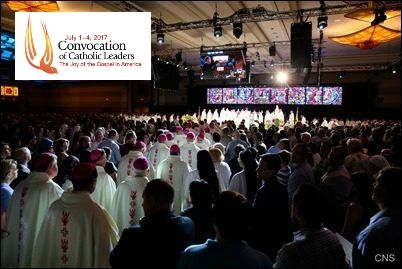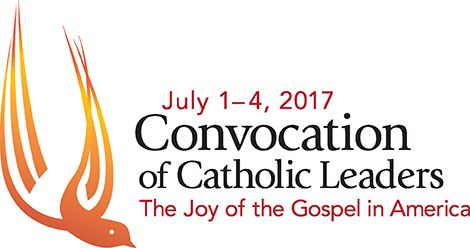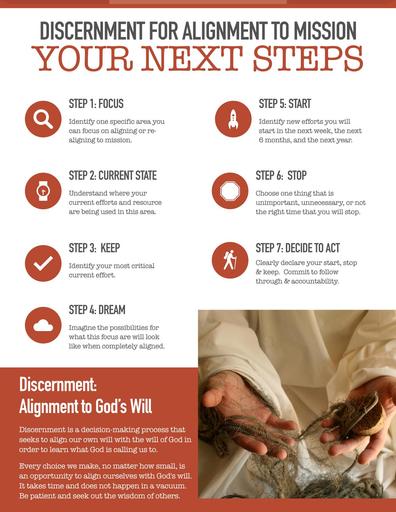The Making Disciples Today Blog has reflections to help you grow in your journey of missionary discipleship, reviews on recommended Catholic evangelization resources, and practical insight on how to evangelize in your daily life.
- Details
- Written by: Burning Hearts Team

Accompaniment and Lent
The forty days of Lent can seem like a long time, especially if one is giving up a favorite food or video game. It's helpful to have a friend to keep us going. He or she can encourage us, challenge us, and pick us up if we falter. In fact, that kind of accompaniment - a holy friendship developed out of mutual love for one another and a desire to walk with one another into deeper relationship with Jesus - is the heart of evangelization and discipleship.
This year, consider finding an accompaniment partner and approaching Lent as a team. That doesn't mean you have to give up—or do—the same exact things, although that's a possibility. It does mean sharing your Lenten resolution(s) and asking for each other's prayers and active support. People often find that they're much more likely to keep their resolutions when they hold themselves accountable to another person. Knowing that someone walks with us, even if it's not exactly the same path, can be a great comfort and motivator.
If you're thinking about Lenten resolutions, consider the traditional practices of prayer, fasting and almsgiving (works of charity). Here are some ideas to get started.
- Details
- Written by: Burning Hearts Team

We all express and feel love differently, and understanding those differences can seriously help our relationships. Being aware of your love language, as well as the love language of the people around you, can improve your relationships with a boyfriend/girlfriend, your co-workers, your parents and siblings, and so many more.
In this talk, Kristin & Tony Bird explain how The Five Love Languages can help foster healthy relationships by recognizing your own needs as well us uncovering how to better meet the needs of the other people in your life.
This talk is a great entry point for audiences who are not explicitly religious or are on the fence. We touch on elements of faith without being explicitly religious. It is particularly fruitful for those who are in early thresholds of conversion.
- Details
- Written by: Jennifer Durren

3 Takeaways from the Convocation of Catholic Leaders
3 members of the Burning Hearts Disciples team joined almost 3,500 participants at the USCCB's 2017 Convocation of Catholic Leaders. The goal of the gathering was to assemble Catholic leaders for a strategic conversation, under the leadership of the bishops, on forming missionary disciples to animate the Church and to engage the culture.
Called by the bishops, the historic convocation will find more than 3,000 Catholic leaders — bishops, clergy, religious and laypeople — meeting July 1-4 in Orlando, Florida, to focus on how the pope’s 2013 apostolic exhortation, “Evangelii Gaudium” (“The Joy of the Gospel”), applies in the United States.
Over the next few weeks we'll be sharing some of our personal insights from the Convocation, the impact this national strategic conversation will have on our apostolate's mission, and our hope for the long-term fruits that will result in the American Catholic Church.
UPDATE: Watch the videos of the Plenary Sessions at USCCB Video On Demand.
Takeaway #1: Unity As the Body of Christ
Immediately upon arriving at the Convocation, it was clear that the first day's theme of "unity" was going to be more than just a buzzword. 3,500 bishops, clergy, religious and laity, including five of the six residential cardinals in the country - featuring delegations from more than 80 percent of the dioceses in the county and all 50 states - were gathered with one unified purpose: to explore The Joy of the Gospel and how to live it out in the Church in the United States.
It was very profound and moving to be in one space with all those fellow Catholic Disciples listening to our Apostolic leaders, and having them listen to us. As we prayed and celebrated the opening Mass, I felt Jesus' love for us and our love for him and each other throughout the room. I found myself thinking,
This is what it means to BE the Body of Christ; although we don’t live it perfectly, we are all the same body of Christ.
- Details
- Written by: Burning Hearts Team

Next week, the U.S. Conference of Catholic Bishops are convening an unprecedented gathering of key leaders from dioceses and Catholic organizations from all across the country in order to assess the evangelization challenges and opportunities of our time, particularly in the context of the Church in the United States.
The goal of the gathering is to assemble Catholic leaders for a strategic conversation, under the leadership of the bishops, on forming missionary disciples to animate the Church and to engage the culture.
Called by the bishops, the historic convocation will find more than 3,000 Catholic leaders — bishops, clergy, religious and laypeople — meeting July 1-4 in Orlando, Florida, to focus on how the pope’s 2013 apostolic exhortation, “Evangelii Gaudium” (“The Joy of the Gospel”), applies in the United States.
Burning Hearts Disciples is honored to have accepted an invitation from the USCCB to participate in this conversation. We will be one of approx 160 collaborating organizations who see evangelization as integral to our mission. We will be among more than 3,000 Catholic leaders from other evangelizing organizations as well as delegations invited from each diocese.

